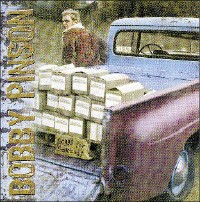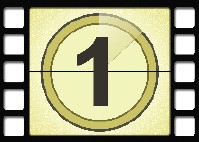There’s a great scene in the film Come Early Morning, Arkansas-bred actress Joey Lauren Adams’ writing/directing debut, where Ashley Judd, playing contractor Lucy Fowler, walks into her favorite beer dive and finds the jukebox being replaced.
People don’t want to hear old music anymore, the bartender explains to Lucy. “They want to hear that new country.” Lucy looks like she’s been slapped. “Oh God, no they don’t,” she gasps.
Released last year, Come Early Morning was either late to recognize a mid-decade artistic boom in mainstream country music or just refused to acknowledge it. The headliners of the new new country were plenty impressive: honky-tonk good-time girl Gretchen Wilson, recovering frat-partier Kenny Chesney, newly retro Lee Ann Womack, and sui generis Big & Rich.
But, to these ears, the most compelling of the bunch may have been a couple of Class of ’05 Texas debutants: Miranda Lambert and Bobby Pinson.
Lambert, a one-time third-place finisher on cable American Idol knock-off Nashville Star, was a breakout star with the album Kerosene and its title single, which ripped off Steve Earle’s “I Feel Alright” and ripped it apart on its way up the country charts.
Pinson, already an established Nashville songwriter, debuted on major-label RCA with Man Like Me and got a few spins on CMT for the video of his single “Don’t Ask Me How I Know.” But stardom didn’t seem to be in the books for Pinson. With his scratchy, idiosyncratic voice, classic-rock crunch, and personal songwriting, Pinson was at least slightly reminiscent of early Earle, and it seemed like a good bet here that, like Earle (and Dwight Yoakam and Rodney Crowell), he’d eventually get weeded out of the Nashville machine and build his career on the industry’s fringes.
Both Lambert and Pinson released sophomore albums this month. Lambert’s Crazy Ex-Girlfriend is primed to build on the commercial momentum of Kerosene. Pinson, however, fell back to earth faster than expected. He remains a successful supplier of songs to other mainstream-country artists, but Pinson’s own second album, Songs For Somebody, is not bankrolled by RCA. It’s released on something called Cash Daddy Records.
As country music was resurgent a few years ago, much was made of the emerging acknowledgement of hip-hop on the country charts, but the biggest manifestation of this may not have been the spoken-word rhymes dropped on Big & Rich or Cowboy Troy records. Rather, it was an eruption of chest-thumping, hip-hop-style ‘hood-repping in the forced celebration of such small-town-pride anthems as 
Wilson’s “Redneck Woman,” Jason Aldean’s “Hicktown,” and Shannon Brown’s “Cornfed.”
In this environment, Pinson’s greatest song, “Nothin’ Happens in This Town,” was something of a contrarian triumph. Against the genre’s constant romanticization of small-town life — church-going, Little League-playing, traditional-values-embracing idyll on one hand; a young, hip, happening never-ending party on the other — Pinson posited a corrective, writing about how absolutely crummy small-town life can be from the perspective of someone who remembers the experience intimately but has been away long enough to gain some perspective.
“Nothin’ Happens in This Town” wasn’t a hit. As far as I know, it wasn’t even a single. But it sounds like one of the decade’s great country songs, and the album that houses it rivals Big & Rich’s Horse of a Different Color as the decade’s finest, most challenging country album.
On Man Like Me, more than anyone else on either side of country’s mainstream/alternative divide, Pinson respects the touchstones of country music — small-town life, simple Christian faith, high school sweethearts, family heritage — while investigating them fiercely: On “Man Like Me,” he remembers the relief of a girlfriend’s negative pregnancy test; on “I Thought That’s Who I Was,” he hears a memory-provoking ditty on the radio and thinks, “God, I still hate that song.” And no one else in music right now redeems red-state religiosity so convincingly. I’d love to see him debate Christopher Hitchens.
You might expect that being “free” of major-label expectations would be good for Pinson’s music, but, on Songs For Somebody, that isn’t quite how it works. For starters, there was no compromise whatsoever to Man Like Me‘s startling songwriting. Rather, Pinson’s doomed bid for “new country” stardom gave those songs musical muscle. Without the full Nashville machine at his back, Songs For Somebody doesn’t sound quite as crisp, but the songs are still there, mostly.
There’s no sure-shot here the equal of “Nothin’ Happens in This Town,” but “Back in My Drinkin’ Days” and “If I Met God Tonight” are more of the kind of treacle-free religious testaments no one else in Nashville seems capable of writing. What comes through here is that Pinson’s songs don’t just radiate empathy but an awareness of how his own oh-so-human actions impact others. The more you listen, the more you realize how rare this is in any sphere of pop songs, and it gives Pinson’s religious musing a strong foundation.
If Pinson’s follow-up record finds him with plenty left to say, but a little deficient musically, Lambert has the opposite problem on Crazy Ex-Girlfriend. The album sounds like a million bucks, but a couple of years of touring and appearance-making haven’t done Lambert’s songwriting any favors. On Lambert’s debut, she had a writing credit on all but one song. On this follow-up, the cover quotient is up to three, with some of Lambert’s originals sounding worked over, like songwriting exercises where the best songs on Kerosene (“Me and Charlie Talking,” “What About Georgia,” “New Strings”) tumbled out more naturally.
Lambert is still a spitfire. (Local filmmaker Craig Brewer has cited Lambert as one of the models for the title character of his next film, Maggie Lynn.) And “Gunpowder and Lead” and lead single “Crazy Ex-Girlfriend” are rousing, war-of-the-sexes outlaw-country rave-ups in the spirit of “Kerosene” but without the pleasing and unexpected class animus that drove that song.
One hopes Lambert can relocate her voice on future albums. The lived-in “Famous in a Small Town” (“Let’s go down to the quick stop/Wear your yellow shades and I’ll put on my tight jeans”) suggests she’s still got it.

